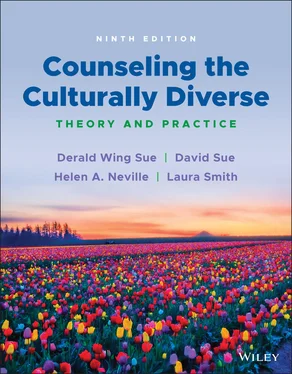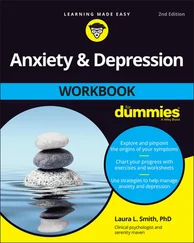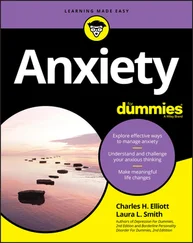5 What solutions can you offer that would be directed at individual change, institutional change, and societal change?
| Themes |
Microaggression |
Message |
| Alien in Own LandWhen Asian Americans and Latinx Americans are assumed to be foreign‐born |
“Where are you from?” “Where were you born?” |
You are not American |
| “You speak good English” |
You are a foreigner |
| A person asking an Asian American to teach them words in their native language |
|
| Ascription of IntelligenceAssigning intelligence to a Person of Color or a woman based on his or her race/gender |
“You are a credit to your race” |
People of color are generally not as intelligent as White Americans |
| “Wow! How did you become so good in math?” |
It is unusual for a woman to be smart in math |
| Asking an Asian person to help with a math or science problem |
All Asian people are intelligent and good in math/ sciences |
| “You only got into college because of affirmative action” |
You are not smart enough on your own to get into college |
| Color BlindnessStatements that indicate that a White person does not want to acknowledge race |
“When I look at you, I don't see color” |
Denying a Person of Color's racial/ethnic experiences |
| “America is a melting pot” |
Assimilate/acculturate to dominant culture |
| “There is only one race, the human race” |
Denying the individual as a racial/cultural being |
| Criminality/Assumption of Criminal statusAssuming a Person of Color to be dangerous, criminal, or deviant based on their race |
A White man or woman clutching their purse or checking their wallet as a Black or Latinx individual approaches or passes |
You are a criminal |
| A store owner following a customer of color around the store |
You are going to steal/You are poor/You do not belong |
| A White person waits to ride the next elevator when a Person of Color is on it |
You are dangerous |
| Use of Sexist/Heterosexist LanguageTerms that exclude or degrade women and lesbian, gay, bisexual, transgender, and queer (LGBTQ) persons |
Use of the pronoun “he” to refer to all people |
Male experience is universal Female experience is meaningless |
| Although a male‐to‐female transgender employee has consistently referred to herself as “she,” coworkers continue to refer to her as “he” |
Our language does not need to change to reflect your identity; your identity is meaningless |
| Two options for Relationship Status: Married or Single |
LGBTQ partnerships do not matter/are meaningless |
| An assertive woman is labeled a “bitch” |
Women should be passive |
| A heterosexual man who often hangs out with his female friends more than his male friends is labeled a “faggot” |
Men who act like women are inferior (women are inferior)/gay men are inferior |
| Denial of Individual Racism/Sexism/Heterosexism/Religious DiscriminationA statement made when bias is denied |
“I'm not racist; I have several Black friends” |
I am immune to racism because I have friends of color |
| “I am not prejudiced against Muslims; I am just fearful of Muslims who are religious fanatics” |
I can separate Islamophobic social conditioning from my feelings about Muslim people in general |
| “As an employer, I always treat men and women equally” |
I am incapable of sexism |
| Myth of MeritocracyStatements that assert that race or gender does not play a role in life successes |
“I believe the most qualified person should get the job” |
People of color are given extra unfair benefits because of their race |
| “Men and women have equal opportunities for achievement” |
The playing field is even, so if women cannot make it, the problem is with them |
| Pathologizing Cultural Values/ Communication StylesThe notion that the values and communication styles of the dominant/White culture are ideal |
Asking a Black person: “Why do you have to be so loud/animated? Just calm down” |
Assimilate to the dominant culture |
|
To an Asian or Latinx person: “Why are you so quiet? We want to know what you think. Be more verbal. Speak up more” |
|
| Dismissing an individual who brings up race/culture in a work/school setting |
Leave your cultural baggage outside |
| Second‐Class CitizenWhen a target group member receives differential treatment from the power group |
Mistaking a Person of Color for a service worker |
People of color are servants to White Americans; they couldn't possibly occupy high‐status positions |
| Mistaking a female doctor for a nurse |
Women occupy nurturing roles |
| Having a taxi cab pass a Person of Color and pick up a White passenger |
You are likely to cause trouble and/or travel to a dangerous neighborhood |
| Ignoring a Person of Color at a store counter and giving attention to the White customer behind them |
White Americans are more valued customers than People of Color |
| Not inviting a lesbian woman out with a group of female friends because they think she will be bored if they talk to men |
You don't belong |
| Traditional Gender Role Prejudicing and StereotypingWhen expectations of traditional roles or stereotypes are conveyed |
A male professor asking a female student working on a chemistry assignment, “What do you need to work on this for anyway?” |
Women are less capable in math and science |
| Asking a woman her age and, upon hearing she is 31, looking quickly at her ring finger |
Women should be married during child‐bearing ages because that is their primary purpose |
| Assuming a woman is a lesbian because she does not put a lot of effort into her appearance |
Lesbians do not care about being attractive to others |
| Sexual ObjectificationWhen women are treated like objects at men's disposal |
A male stranger putting his hands on a woman's hips or on the swell of her back as he passes her |
Your body is not yours |
| Whistling at and catcalling a woman as she walks down the street |
Your body/appearance is for men's enjoyment and pleasure |
| Using the term “gay” to describe a fellow student who is socially ostracized at school |
Gay people are weird and different |
| Assumption of AbnormalityWhen it is implied that there is something wrong with being LGBTQ |
Two men holding hands in public receiving stares from strangers |
You should keep your displays of affection private because they are offensive |
| “Did something terrible happen to you in your childhood?” to a transgender person |
Your choices must be the result of a trauma and not your authentic identity |
| Helplessness aWhen people frantically try to help people with disabilities (PWDs) |
Helping someone with a disability on to a bus or train, even when they need no help |
You can't do anything by yourself because you have a disability |
|
People feeling they need to rescue someone from their disability |
Having a disability is a catastrophe |
| Denial of Personal Identity bWhen any aspect of a person's identity other than disability is ignored or denied |
“I can't believe you are married!” |
Your life is not normal or like mine; the only thing I see when I look at you is your disability |
| ExoticizationWhen an LGBTQ person, woman of color, or member of a religious minority is treated as a foreign object for the pleasure/entertainment of others |
“I've always wanted an Asian girlfriend! They wait hand and foot on their men” |
Asian American women are submissive and meant to serve the physical needs of men |
| “Tell me some of your wild sex stories!” to an LGBTQ person |
Your privacy is not valued; you should entertain with stories |
| Asking a Muslim person incessant questions about his or her diet, dress, and relationships |
Your privacy is not valued; you should educate me about your cultural practices, which are strange and different |
| Assumption of One's Own Religion as Normal c |
Saying “Merry Christmas” as a universal greeting |
Your religious beliefs are not important; everyone should celebrate Christmas |
| Acknowledging only Christian holidays in work and school |
Your religious holidays need to be celebrated on your time; they are unimportant |
aAdapted from Sue, Bucceri et al. (2007).












